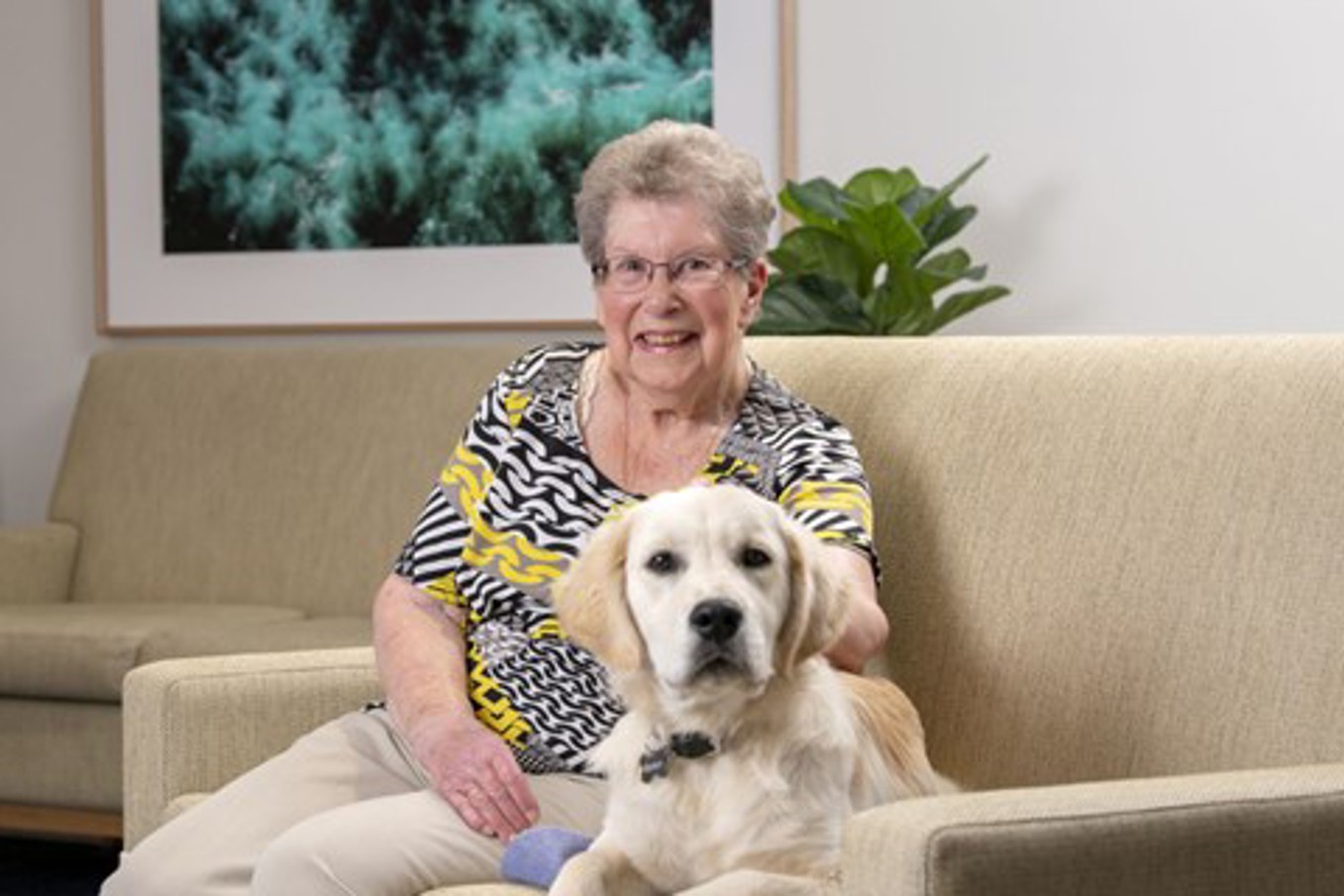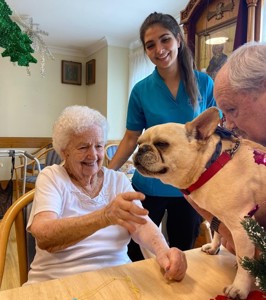Pet therapy a growing part of life in residential aged care
07/02/2024

There are still relatively few aged care homes that allow pets – but more providers are using ‘pet therapy’ to improve the health and wellbeing of their residents.
What is pet therapy?
Animal-assisted therapy involves introducing animals to residents, and can involve any type of animal, from cats and dogs to horses and birds. The animals are trained to provide comfort and companionship to older people, as well as to help them learn skills and become more active.
Pet therapy has been shown to help to reduce loneliness, as the presence of an animal can provide a feeling of companionship and security, and increase belonging and sharing among the group.
Studies have also found that pet therapy can reduce blood pressure, improve cardiovascular health, and reduce the risk of falls. It can also provide physical stimulation, which can help to increase mobility and strength, and offer a distraction from the pain or discomfort associated with certain medical conditions.
June Brown, a volunteer at South Australian Not For Profit aged care provider Eldercare, brings her faithful friends Wally, the pug, and Billy, the poodle, to Eldercare The Village in Maitland in the Yorke Peninsula, 168km west of Adelaide, on Tuesdays, when they share the love by visiting residents in the common room and in private rooms. Residents at the home are also visited by dogs owned by family and friends.

Photo: St Sergius Aged Care Facility. СЕРГИЕВ ПОСАД (г.Сидней, Австралия)
Eldercare volunteer program coordinator Kylie Maher said canine visitors offered a range of therapeutic benefits and had been a feature of Eldercare homes for many years.
“Residents get to pat and share cuddles and they look forward to having their friendly pooches come back.
“We know the feeling of loneliness subsides when people have one-on-one social support and interactions, and the dogs are additional to this and hugely popular.”














